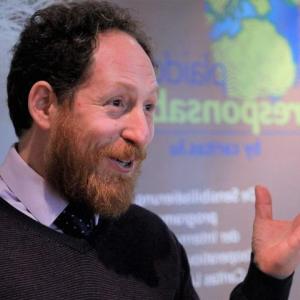Short description:
Assistant Professor in computer science working on regulatory compliance checking automation. Currently, I am leading research in the university of Luxembourg about cognitive computing using machine reasoning, which is applied in the legal domain. Among the project aims is empowering people without legal background to be able to make some legal decisions and to help legal practitioners improve the legal decision process.
Short description:
I work at the intersection of politics (electoral, social movement, identity) and popular culture (especially social media). My work often brings together questions of race, gender, sexuality, class, and various ethnic differences with issues of disinformation and participation. I have also been a union delegate in France, representing employee rights, including those of inclusivity and non-discrimination. I am a professor at the American University of Paris, where I teach courses about many of the aforementioned issues in a comparative cultural context.
Short description:
I am a development economist whose research focuses on the Asian region, particularly Indonesia, elsewhere in Southeast Asia and China. My research uses the tools of micro-econometrics, experimental economics and randomised controlled trials to evaluate economic and social development policy and to understand human behaviour. I conduct field work and use large secondary data sets. I am interested in understanding economic disadvantage, marginalised groups, inequality and poverty.
Short description:
Stacey H. Chen is a Professor of Economics at UTokyo Public Policy and a Taiwanese citizen. Stacey's research focuses on labor AND development economics issues, with an emphasis on health and education. Before coming to Japan, she taught at the University of New York at Albany and the Royal Holloway University of London. In December 2019, Taiwan Economic Association awarded her study on sibling competition's impact on gender inequality within the family the Best Paper on Taiwan Economic Research.
Short description:
Neil Shearing is Group Chief Economist at Capital Economics, the world's leading independent macroeconomic research companies. He has overall responsibility for managing the firm's economists and leading its research. He is also a director of the company.
Neil is the first point of contact for many clients and presents regularly on the global economic and financial market outlook. He is a well-known voice within the investment community and has written articles in the Financial Times and a number of other newspapers, as well as appearing regularly on TV and radio.
Neil joined Capital Economics from HM Treasury where he worked as an Economic Adviser in various areas, including fiscal policy and global economics. He holds degrees in Economics from the University of York and the University of London and is an Associate Fellow in the Global Economy programme at Chatham House.
Short description:
senior economist at the national statistical office of Luxembourg (STATEC). Specialized on well-being studies with a focus on sustainable and inclusive economic growth. My studies lead me to argue for a shift from GDP as the preeminent measure of quality of life to well-being, and propose that societies should invest in the conditions for better social relations. Such a reorganization requires a new cultural movement, which I call neo-humanism.
Short description:
I am a computational social scientist in the Department of Politics at the University of Exeter. My work focuses on questions of public involvement and engagement in environmental decision making. In my research I explore two related themes – how the structure and dynamics of inter-organizational networks affect policy change, and how the structure and dynamics of belief networks affect behavioral change. Substantively, I study how people try to bring about societal change in response to political and environmental concerns. Methodologically, the need to grapple with these often complex phenomena requires the use and development of techniques for handling large, dynamic, and relational datasets.
Short description:
Maggie currently holds a joint position as the Australian Director at UWA Confucius Institute and an academic in the Business School. Maggie’s research interests and publications mainly include cross-cultural communication, social media and public relations. One of Maggie’s books Cyber-nationalism in China has been sold and downloaded more than 60,000 times. One of her recent articles “‘Reversed agenda-setting effects’ in China: Case studies of Weibo trending topics”, published by the Journal of International Communications, has become one of the most read articles on Taylor & Francis online.
Maggie's work has been featured in many high-profile media outlets, including Washington Post, Wall Street Journal, VOA, ABC, SBS, CGTV, Weekendavisen.
In 2018, she was named one of the ten most outstanding young Australian-Chinese in Australia's Golden Wattle Awards.She is also a research member of the Soft Power Advocacy & Research Centre at Macquarie University, focusing on the use of social media in public diplomacy. Maggie also serves on the editorial board of the Journal of Asian Communication.



